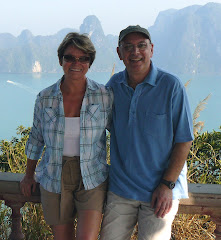
The problem with having a few bad days is that you start to worry they won’t be followed by a few good ones. One bad day, OK. Two, never mind. But three - and you start to wonder. It’s time to start reciting the mantra - one day at a time. Fortunately, everyone agrees cancer does not proceed in a straight line. It’s as unpredictable as the rest of me. The end is not in sight. One day at a time.
The pain kicked in just before last weekend. I’m not particularly scared of pain but it does sort of take the fun out of things. I started to cancel social engagements – a pain in itself. And I saw the pain in Mary’s eyes as she saw the pain in mine. And that really hurt.
But I’m well supported here – by the hospice and the Macmillan nurses and the GP - and by Monday afternoon I’d got a new drug. It’s called oramorph and cancer fans will know it’s on the top rung of the painkilling ladder. Forget your codeines and paracetemols. This is hardcore. It’s so cool you don’t pour it on to a spoon. You suction it with a syringe then squirt the stuff straight down your throat. Fifteen minutes later you go all woosy.
And that’s the trouble with strong painkillers. They’re great at controlling pain – if you don’t mind being rendered unconscious. But, hey, I’m a social butterfly. I need to be out there. Nothing amusing happens to you when you’re spark out for the day. So on Wednesday, I relaxed the oramorph and went lunching in the West End. Best decision ever.
So... I am in a Turkish restaurant just up the road from Broadcasting House, nibbling some bread and hummus, and chatting to Tim and Fiona and Chrissie, and waiting for Rachel and Kav to arrive. (None of the names in this story will be changed to protect the innocent, as frankly they can look after themselves). As we’re sitting there, I spot the frantic figure of Mark, in his usual desperate hurry, about to leave the restaurant. Then he sees me. Unexpectedly. Out of context. And clearly not dead. What to do? He’s madly busy and he can’t stop. On the other hand, if it really is me, and apparently still breathing, then he can’t NOT stop.
So he stands frozen, ashen-faced, eyes like saucers. “Take it easy Mark, you look like you’ve seen a ghost,” said Tim. “Not yet,” added Chrissie, helpfully.
Lunch was great but because much less alcohol is taken nowadays, it only lasted about three hours. In earlier days, it was a minimum of six. And in the very early days (see picture), it lasted until the following Sunday. It was illegal to leave any earlier.
I caught a taxi home and got one of those miserable cabbies who complain that Muswell Hill is the end of the known world. You’ll have to give me directions, said the driver, clearly fed up about leaving central London. Really, I said, didn’t you do the Knowledge? Yeah, he said, but that was 20 years ago. You can relax mate, I said, Muswell Hill hasn’t moved since then.
The following day I was back in the West End for Viv’s leaving party. I like the familiarity of a BBC gathering. It’s nearly ten years since I left the BBC, but the corporation is like an old overcoat you can pick up and wear at any time and always feel very comfortable. That’s why people keep going back to work there – myself included.
Leaving parties are important. It matters how you leave a place – or a job, or a relationship or even the Planet Earth itself. If you leave on good terms, you’ll always have a residual affection for it. So always make your peace. At my own BBC leaving party, I tried to express this with for a suitable quotation. I was hoping for a bit of Aristotle or Shakespeare or Bernard Shaw, but eventually settled for something by Gary Barlow, the blond one from Take That. “Whatever I said, whatever I did, I didn’t mean it.”
I was planning to ask some of the people at Viv’s party to my funeral – but it’s a real snag trying to set a date. Safe to say, if they’re reading this, they’re invited.

